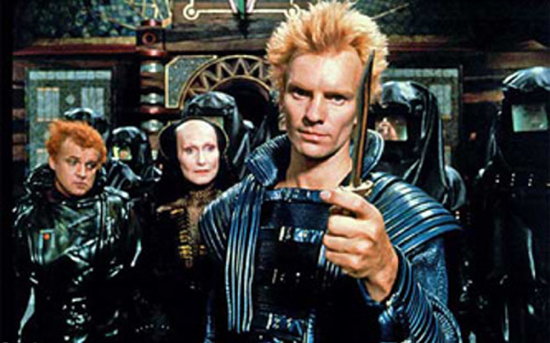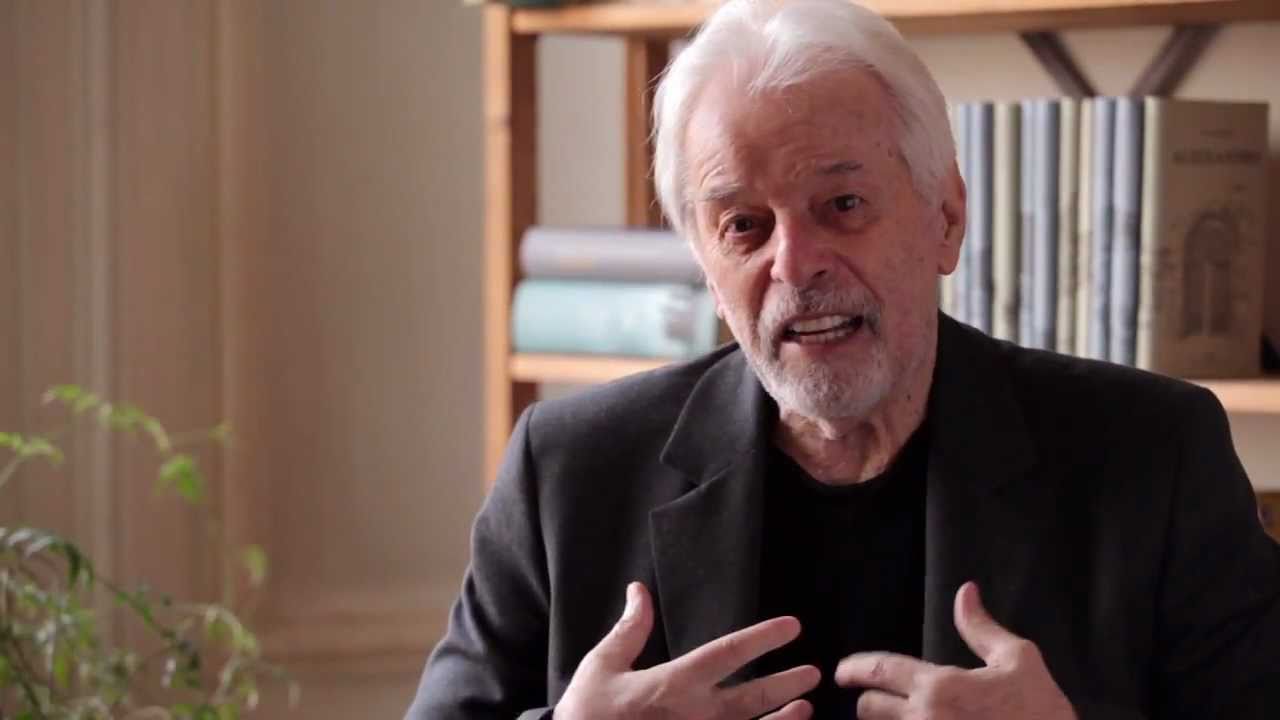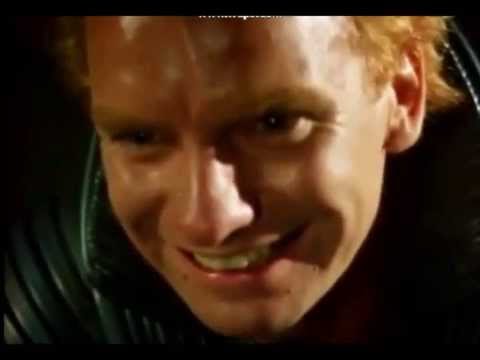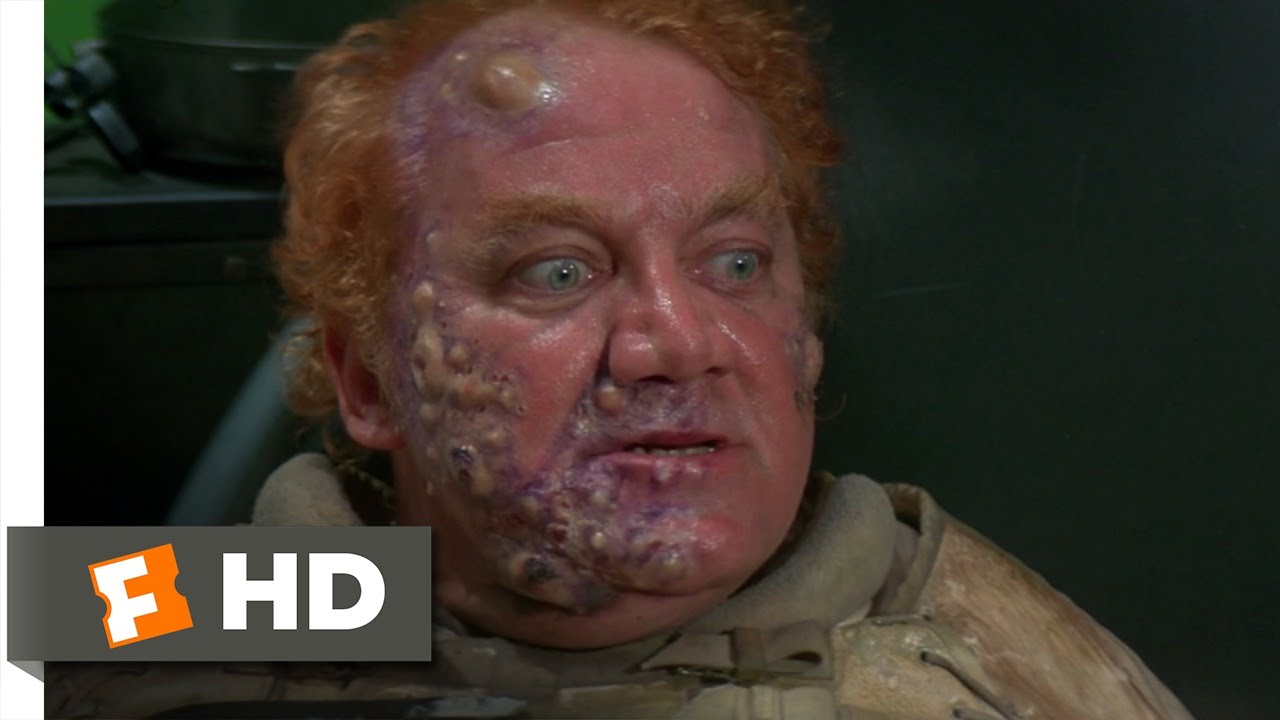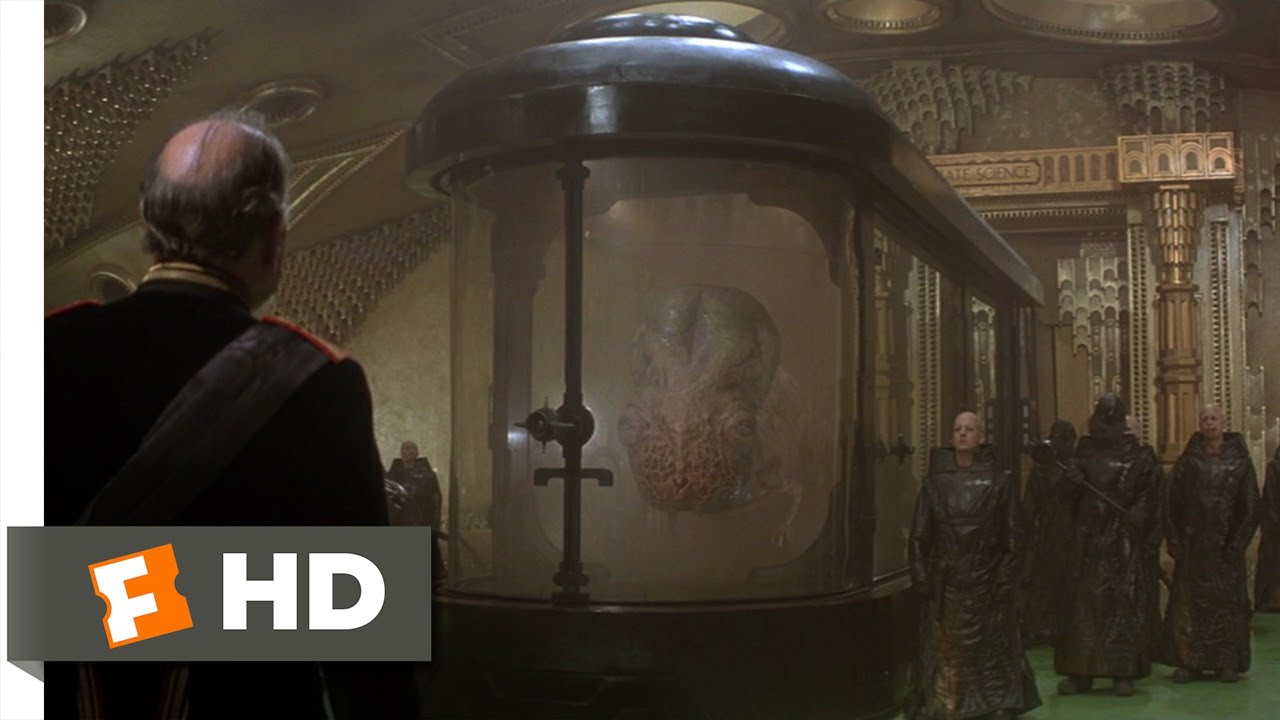In a strange case of synchronicity, the Quietus asked me to say something about the sci-fi opus Dune – screening twice this month as part of the BFI season David Lynch: A Reputation Precedes… (full preview here) – on the very day I ordered the Blu-ray from the USA. I’ve been waiting a long time for a high quality release and, sadly, I’ll be waiting a lot longer for a super-duper director’s cut, packed with documentaries explaining the numerous mysteries surrounding the first complete production based upon Frank Herbert’s densely plotted masterpiece. Veering from grandly beautiful to plain bloody ugly, sporting some genuinely crappy (and in some places unfinished) special effects and featuring a weird cross section of acting (and hamming) talent, Dune stands unique among the pantheon of godlike cinematic science fiction presences.
In a strictly monotheistic environment where Star Wars rules there is no place for a film like Dune, a distinct irony considering that Frank Herbert, upon seeing George Lucas’s smorgasbord, claimed to have identified no fewer than 37 points of direct comparison between the blockbuster and his, as yet unfilmed novel. Thanks in part to Lucas – before he had curled out a number of gigantic turds over his own doorstep – the appetite for the genre was rapacious: the likes of Alien, Blade Runner, Metalstorm: The Destruction Of Jared-Syn and, by 1984, Dune were all getting made. The daunting, outlandish and challenging scope of Frank Herbert’s brick of a book takes on an added dimension when the previous attempts to adapt it are considered. The first substantial effort was undertaken by Alejandro Jodorowsky, the man behind El Topo and The Holy Mountain. The maverick Chilean engaged the unique artistic talents of H.R. Giger, Christopher Foss and Jean Giraud aka Moebius to start pre-production on designing the film, with Gong, Tangerine Dream and Pink Floyd lined up to compose music. The sheer cliff face of bonkers was then scaled when he approached Salvador Dali to play the Emperor of the Known Universe. After demanding $100,000 per day and a toilet-throne made of dolphins, Dali agreed. Perhaps predictably, affairs rapidly spiralled into utter madness and scatology to the point where collaborator Dan O’Bannon was admitted to a psychiatric hospital and the Hollywood backers withdrew their support. For more about the Dune you’ll only ever dream of read Lee Arizuno’s extensive tQ feature.
Lynch’s effort may seem vanilla by comparison, but by normal genre standards it is certainly an eccentric piece of work. Even after forgiving Kyle MacLachlan’s patently bizarre chin and the giant sandworms which look like they were knocked up by Blue Peter presenter Lesley Judd in a Japanese POW camp, one cannot fail to notice the colossal flaws in executing the story of a feudalistic, far-flung future. It commits the cardinal sin of the adaptation: if you haven’t read the book it makes no bloody sense whatsoever. Dune is populated by human computers, drug-addled mutants, scheming assassins plus a host of dysfunctional families and cabals vying for power, wealth and above all Spice – the key to longevity and prescience. Lynch takes some liberties with the fundamentals of the plot, alarmingly so in the case of the ending, but changes had to be imposed to mitigate the fact that George Lucas had already nabbed a number of key features previously unique to Dune. (Danny Cannon and company would have a similar problem many years later with their Judge Dredd adaptation, after RoboCop had plundered the comic’s signature characteristics.) Herbert’s hugely intricate and meticulously detailed plot compounded the issue. So much so that John Harrison’s TV miniseries, first broadcast in 2000, spanned almost five hours despite having compressed or omitted a number of elements.
Cinema is certainly not new to shorthand versions of epic novels, but some of the methods employed by Lynch can be particularly jarring at first – the chief example being his decision to allow the audience to overhear characters’ thoughts as lines of dialogue. Thanks to the accompanying shots of the thinkers in question looking at best vaguely pensive and, at worst, utterly vacant, the results range from diffident to bizarre. The average viewer can only be distanced further by the chewiness of Lynch’s dialogue and the cast’s wildly diverse response in their delivery choices. Some achieve masterful results, most notably Kenneth McMillan (Baron Harkonnen) and Brad Dourif (the Baron’s sidekick Piter De Vries), whose every utterance is thoroughly invested with glee and dripping with spite. Undoubtedly as actors they just get it. Sadly, some plainly do not and their efforts, even to an avowed Dune fan, threaten to blow the whole mood. Kind of like your mam and dad coming round during a particularly hilarious, Butthole Surfers-accompanied mushroom trip and telling you the dog is dead.
Dune‘s closest analogue is John Boorman’s Excalibur. At the time of its 1981 release a US critic, while denigrating the film as a whole, noted that "the images have a crazy integrity". It was, in effect, a greatest hits collection of Mallory’s Le Morte d’Arthur: an artfully visualised series of key scenes and epic occurrences that lacked a uniting flow. The same could be said of Lynch’s picture and its source novel.
Despite these shortcomings, Dune still manages to scale brilliant heights. Sting is awful, that’s a given, but according to one of the many rumours surrounding the film he was already cast and forced on Lynch as part of the deal. Toto composed music for the soundtrack – music that actually made it into the film – yet it sounds fantastic thanks largely to Brian Eno’s input on the signature theme. Across the board, there is always a saviour at hand. For every Sting there is a Brad Dourif; for every Button Moon-esque miniature shot there is a hand-crafted set of sumptuous detail and virtuosity; and for every clunky sandworm a gloriously immersive matt painting by genius industry artisan Syd Dutton. Ultimately the big saviour, in the face of an impossibly convoluted script devoid of all comprehensibility to the casual cinema goer, is David Lynch himself. He may have largely disowned and generally declined to talk about it, but his fingerprints are all over this film. Furthermore, thanks to the essence of the original story, the looming production pesence of the De Laurentiis family and the eclectic international cast, it has a slightly seedy, nasty European sensibility quite unlike any other mainstream blockbuster (with the possible exception of Flash Gordon, another glorious De Laurentiis failure from four years prior).
David Lynch’s Dune is not Star Wars (although it could have been: George Lucas approached Lynch to helm Return Of The Jedi before hiring Richard Marquand). There are no sassy robots, no laconic heroes, no aliens and no dogfights in space. There are, however, lots of very unpleasant people trying to screw each other over on a grand stage, set against a complex backdrop of subplots and themes involving power politics, bloodline manipulation, messianic tendencies, cultural conflict, ecological flux and greed. The 140-minute theatrical cut struggles to knit them into a cohesive whole and this undoubtedly contributed to the poor reception it received in 1984, although it did intrigue enough viewers for the De Laurentiis Company to re-edit and release a three hour version for television. A number of the more unpleasant and suggestive scenes were removed, ensuring that the extended cut is a frustratingly less complete experience. Lynch himself objected strongly enough to withdraw his directorial credit on this version, resulting in it carrying the Alan Smithee seal of disapproval. Undoubtedly there is an appetite for a Lynch-supervised restoration but it will probably never happen, so we have what we have: a flawed but ingenious slice of Lynchian weirdness wrapped up in a juicy ball of vivid imagery, perverse villainy and gloriously left-field performances.
I see no reason whatsoever why Dune should be enjoyed any less than the director’s other, even more unfathomable but still outlandishly brilliant works. As a Lynch fan it affords a heaven-sent opportunity to see him grapple with massive sociological themes, shoot futuristic visuals on 70mm and coordinate the talents of cinematographer Freddie Francis on altogether grander vistas than the tightly focused and claustrophobic The Elephant Man. For the discerning viewer, one unconcerned with mainstream appeal and hungry for sensation, David Lynch’s Dune is a glimmering, idiosyncratic success. And Jack Nance is in it.
Dune screens on Saturday February 4 and Friday February 17 at BFI Southbank. Tickets can be purchased here.

